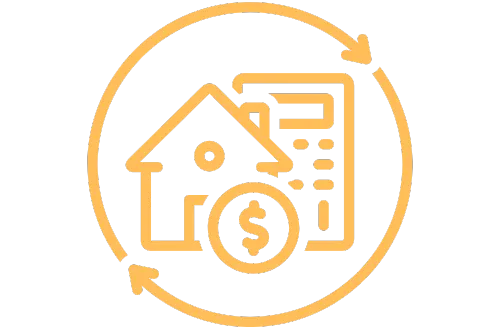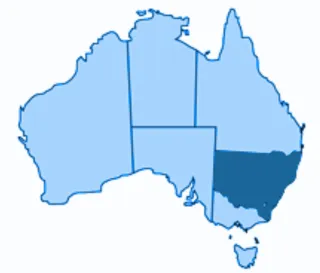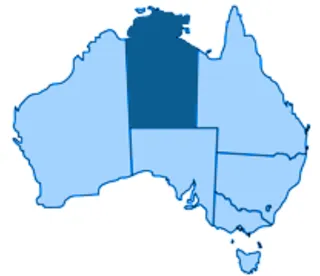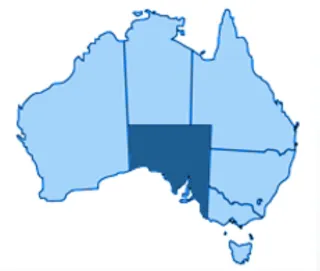Home Loans
Our Services, YOUR Options
Leveraging Debt to Achieve Wealth

Purchase
We provide Home Loans to those looking to purchase a:
First Home
Investment Property
SMSF Property
DHOAS Loan

Refinance
Refinance options for those looking to:
Save
Invest
Consolidate Debt
Renovate / Restructure

Investment Loans
Solutions for those looking to upgrade or expand your:
Current Home
Property Portfolio
SMSF Loan Strategy
Loan Structure

Construction Loans
Construction loans for those needing funds for:
House and Land Packages
Owner Builders
Build on your Block
Government Incentives
Eligibility criteria apply.
Federal Government Scheme
First Home Guarantee (FHBG):
Supporting eligible home buyers to buy a home sooner, with a deposit as little as 5%.
Regional First Home Buyer Guarantee (RFHBG):
Supporting eligible regional home buyers to buy a home sooner, in a regional area, with a deposit as little as 5%.
Family Home Guarantee (FHG):
Supporting eligible single parents and eligible single legal guardians of at least one dependent to buy a home sooner, with a deposit as little as 2%.
Click here to learn more.

Australian Capital Territory
The ACT Government has a concession scheme to help people to buy the home by removing or reducing duty on any property.
Click here to find out more.

New South Wales
First home buyers in NSW may be eligible for a duty exemption, concession or grant. Key workers, single parents and single people 50 or over may also be eligible for Shared Equity Home Buyer Helper.
First Home Buyers Assistance Scheme:
Full or partial exemption on Stamp/transfer duty.
First Home Owners Grant (New Home):
$10,000 towards the purchase price, in addition to the First Home Buyers Assistance Scheme benefits.
Shared Equity Home Buyer Helper:
Support for eligible first home buyer key workers.
Click here to find out more

Northern Territory
If you are buying or building a new home, you can apply for a First Home Owner Grant (FHOG) of $10,000.
Click here to learn more.

Queensland
The first home owner grant gives eligible first-time home buyers $15,000 towards buying or building a new home in Queensland.
The regional home building boost grant gives eligible applicants $5,000 after the purchase or construction of a brand-new house, unit or townhouse in regional Queensland.
When you buy or acquire a residence or vacant land on which you intend to build your first home, you may be able to claim a concession that reduces the amount of transfer duty you have to pay.
Click here to learn more

South Australia
First Home Owner Grant: You may be eligible for a first home owner grant of up to $15,000
Stamp Duty Relief for Eligible First Home Buyers: You may be eligible for a stamp duty relief on the transfer of land.
Click here to learn more

Tasmania
A first home owner grant is available to eligible applicants who purchase or build a new home in Tasmania. $30 000 grant: for transactions that commence between 1 April 2021 and 30 June 2024.
Click here to learn more.

Victoria
In Victoria you can receive $10,000 with the First Home Owner Grant (FHOG) If you are buying or building a new home valued up to $750,000.
To be eligible, the home must not have been previously sold or occupied. You may also be eligible for, and receive, more than one exemption, concession or reduction from stamp duty for your property.
Click here to find out more

Western Australia
You may be eligible to the grant being $10,000 or the consideration paid to buy or build the house if less than that amount.
Click here to learn more.


The Vadium Monthly - January 24
The Vadium Monthly

WHY YOU SHOULD BUY IN JANUARY
Buying a property, whether as an investment or as your principal place of residence, is never a straightforward process. It takes time to do the research, look at various properties and then make a competitive offer to get the deal done.
During certain times of the year, buying a property is a little easier than others. The holidays can be that time of year if you’re prepared to take some time out from your break. Here are two things you can do to find a great buy during the holidays.
Speak to agents
The Christmas holiday period is traditionally a time of year when many sales agents take time off. They work for most of the year and do a lot on weekends, so breaks are few and far between. Therefore, during the summer, many will take the entire month of January off. With many vendors and buyers also away, the market slows down. However, this can be the time to hunt around for opportunities.
Savvy agents realise that if you are away for the month, then you will likely be starting the year on the back foot. Many agents these days return early and start preparing for the new year. That means they are already planning marketing campaigns and getting their listings together. This can be a great time to contact real estate agents who operate in the areas you are looking at buying in and see what they have coming to market. Doing this gives you the first look at properties when others are still away. You might even be able to do a deal before a property has any competition at all.
Older listings
Most sales agents and vendors would have hoped to have sold their listings prior to the Christmas break. Usually, the spring selling season is the big push and most people aim to have finalised everything ahead of the holidays.
If a home is still listed for sale, it can mean the vendor was asking too much, or that it might have some issues. However, the fact that it hasn’t sold means that the vendor might have to adjust their expectations on price. This gives active buyers an opportunity to negotiate and potentially secure a good deal.

SIX PREDICTIONS FOR AUSTRALIA'S PROPERTY MARKET IN 2024
After a mixed few years for Australian property, experts are starting to look at a number of issues that will potentially play out in 2024.
Domain's Chief of Research and Economics, Dr Nicola Powell, said there are six things that might happen in the next 12 months, including interest rates falling, buyers looking for affordability and surging population numbers boosting demand.
An interest rate cut will spark demand
In a surprising move, the Reserve Bank of Australia raised interest rates on Melbourne Cup Day, pushing the cash rate target to 4.35%. Dr Powell said that a potential interest rate cut could inject momentum into the market by boosting affordability and buyer confidence.
The easing of mortgage serviceability buffer
Affordability issues and lower borrowing power have constrained many aspiring homeowners. Dr Powell said that an easing of the mortgage serviceability buffer, possibly from 3 percentage points to 2.5, could boost borrowing capacity. This small change could help those struggling to enter the property market and also lift consumer sentiment.
The flight to affordability
With affordability challenges in major cities, buyers may explore "bridesmaid suburbs" – second-choice areas that offer more reasonable property prices. Dr Powell said a trend of people looking further afield or opting for units over houses has been growing.
YIMBYs will replace NIMBYs
Dr Powell also predicts a shift in housing attitudes, from the classic "not in my backyard" (NIMBY) outlook to a “yes in my backyard” (YIMBY) one. Progressive housing and national planning reforms are expected, encouraging urban densification. She said there is a need for both urban sprawl and densification, challenging the prevailing resistance to development often seen at the local government level.
Population-driven housing demand
While net overseas migration may have peaked, Dr Powell said strong population growth is likely to continue over the next 12 months, putting the rental market under extreme pressure. This growth, fuelled by overseas students and a demand for rentals, will strain property values and the availability of rental units.
Rental markets reach a tipping point
Australia has witnessed a trend of prolonged rental growth, but Dr Powell said this might be coming to an end. Rental price growth, which has been in the double digits, is expected to slow particularly in the latter half of the year. Dr Powell said that policies favouring first-home buyers could be a catalyst, alleviating rental demand as tenants transition to homeownership.

SIX WAYS TO PAY OFF YOUR HOME FASTER IN 2024
For most people, their home is their biggest expense and the sooner you can pay down the debt, the better off you’re going to be financially. Fortunately, there are a number of things you can do to cut years off your mortgage.
Get a lower interest rate
A lower interest rate isn't just a number on paper – it's a direct pathway to paying less over the life of your loan. While the idea of refinancing might initially seem like a substantial undertaking, the long-term financial benefits are something that you need to review regularly with your mortgage broker. However, refinancing isn't the only option. Negotiating with your current lender and asking them to match the interest rates offered to new customers can yield similar benefits.
Make more frequent repayments
Changing your repayment frequency from monthly to fortnightly might appear a small change, but it can make a significant difference. By opting for fortnightly repayments, you end up making an additional month's payment every year without straining your budget. This small adjustment accelerates your repayment schedule, bringing you closer to your mortgage-free goal.
Consider making extra repayments
Windfalls, such as work bonuses, tax refunds or inheritances can serve as important opportunities to make additional payments towards your mortgage. The beauty of this approach lies not only in shortening your loan term but also in reducing the overall interest paid.
Open up a redraw facility
While making extra repayments is important, there might be times when you need that money back. A redraw facility addresses this issue by pooling additional repayments, allowing you to access these funds when necessary. Although some lenders may charge a nominal fee for withdrawing funds, this feature can prove invaluable when financing renovations or handling unexpected expenses without erasing the progress you've made.
Put your savings into an offset account
An offset account is a financial tool linked to your home loan balance. It works like a transactional savings account by enabling you to withdraw funds for everyday expenses. The funds in your offset account directly reduce the interest charged on your loan principal, leading to potential savings.
Decrease your loan repayment term
As your personal circumstances evolve, so should your loan repayment term. If you find yourself in a more comfortable financial position, consider reducing your loan term – for example, from 30 years to 25 years. To make this feasible, you'll need to increase your minimum monthly repayment. If this adjustment fits comfortably within your budget, the benefits are significant – you can end up paying off your loan years earlier with substantial interest savings.
DEBT CONSOLIDATION USING YOUR HOME LOAN
As the new year gets underway, it can be the perfect time for many to take a closer look at their finances. To get ahead, one of the most important things you can do is to cut down on your high-interest debts. For homeowners, a clever way to do this is with the help of debt consolidation. Consolidating various debts into your home loan can be a strategic financial move that reduces your interest and allows you to pay the debt down faster. However, there are both advantages and disadvantages that you need to consider.
Advantages:
Lower interest rates: One of the advantages of debt consolidation is the potential for lower interest rates. Home loans typically offer significantly lower interest rates compared to unsecured debts like credit cards or personal loans. By consolidating these debts into your home loan, you can enjoy substantial savings over the long term. This not only reduces your monthly payments but also allows you to pay less interest over the extended repayment period.
Streamlined management: Managing multiple debts can be overwhelming, leading to missed payments and financial stress. Debt consolidation allows you to streamline your financial obligations into a single, easy-to-manage account. With just one monthly repayment, you can regain control of your finances and ensure timely payments, simplifying your financial landscape.
Fee reduction: Juggling multiple accounts often comes with various fees, such as account maintenance charges. Consolidating your debts into a single account can associated fees. This streamlined approach not only saves you money but also offers greater transparency in tracking your financial commitments.
Improved cash flow: Lowering your interest rates through debt consolidation translates to improved cash flow. With reduced monthly payments, you free up additional funds that can be redirected towards other financial goals. Whether you choose to spend, save, or invest, the increased cash flow provides financial flexibility and opportunities for wealth-building.
Disadvantages:
Home at risk: One significant drawback of debt consolidation using your home loan is the increased risk to your property. Converting unsecured debt into secured debt means offering your home as collateral. If you fail to make consistent repayments, you risk losing your home, making it crucial to prioritise timely payments to mitigate this potential downside.
Potentially higher interest: While the promise of lower interest rates is a key advantage, poorly structured debt consolidation loans may result in increased interest payments over the loan's lifespan. Carefully consider the terms of the consolidation, especially the length of the repayment period, to ensure that you don't end up paying more interest in the long run.
Refinancing fees: The process of debt consolidation often involves refinancing, which can incur additional fees. These may include setup fees, exit fees from existing loans, and application fees for the new consolidated loan. It's essential to factor in these costs when evaluating the overall financial impact of debt consolidation.
Loan to Value Ratio (LVR) impact: Bundling existing debts with your home loan may impact your LVR. If this ratio exceeds 80%, you may be required to pay Lenders Mortgage Insurance (LMI), adding an extra cost to your financial obligations.
Reduced flexibility: Unlike unsecured debt loans that often offer flexibility in repayment frequency, home loans may come with limitations. Monthly repayments could be mandatory, and there might be charges for making extra repayments. This reduced flexibility could affect your ability to manage your repayments according to your preferred schedule. The first step when weighting up debt consolidation is to speak to a mortgage broker who can look at your financial situation and compare your options.

FIVE THINGS TO CONSIDER BEFORE GETTING CARAVAN FINANCE
One of the best parts of the summer holidays is packing up the car and heading off on a family holiday. A popular choice for many Australians is staying at caravan parks in iconic locations. These trips can get people thinking about whether they should take the next step and purchase a caravan or camper of their own. Before starting this journey, it’s important to look at how you are going to finance your new caravan. Here are five crucial aspects to consider before looking into caravan finance.
Interest rates
Similar to car loans, caravan and camper loans offer a variety of products with different interest rates. The rates can range from low to relatively high depending on factors like the lender, loan configuration and your credit history. The key distinction often lies in whether the loan is secured or unsecured. Secured loans tied to the asset (caravan), often have lower interest rates. On the other hand, unsecured loans – though offering higher interest rates – don't link the loan to the asset, providing greater flexibility.
Loan terms and lengths
Caravan loan terms can vary, spanning from a couple of years to around seven years. Opting for a shorter term might mean higher monthly payments but less interest paid over the loan's life. Borrowers often decide based on their budgetary constraints, choosing repayment periods that align with their financial situation. Additionally, borrowers can opt for fixed or variable rates. Fixed loans provide payment certainty, while variable loans offer flexibility that can be beneficial but come with the uncertainty of market fluctuations.
Be mindful of options and extras
Caravan prices often only reflect the basic essentials. Caravans, much like cars, come with numerous optional accessories that can significantly impact the overall cost. From bedding areas to plumbing, sinks, ovens, showers and more, these optional extras can add thousands to the total. When applying for a loan, it's crucial to account for these potential add-ons to avoid surprises down the road.
Bad credit?
Having a less-than-stellar credit history doesn't necessarily mean you can't secure financing for your caravan or camper. Taking steps to improve your credit report, such as timely repayment of existing loans and bills, can improve your chances of getting better interest rates. Working with your finance broker is another important step in comparing your options and seeing what is available to you.
In-house vs. external finance
Caravan dealers often offer in-house finance, similar to car dealerships. While this may seem convenient, it's crucial to look closely at the interest rates and loan terms. In many cases, these in-house loans are white-labelled products from external lenders, potentially carrying steeper interest rates and restrictive repayment terms. Exploring external financing options with your finance broker allows you to shop around, securing the best rate and loan terms tailored to your specific needs.
This is general information only and is subject to change at any given time.
Your complete financial situation will need to be assessed before acceptance of any proposal or product.

The Vadium Monthly - January 24
The Vadium Monthly

WHY YOU SHOULD BUY IN JANUARY
Buying a property, whether as an investment or as your principal place of residence, is never a straightforward process. It takes time to do the research, look at various properties and then make a competitive offer to get the deal done.
During certain times of the year, buying a property is a little easier than others. The holidays can be that time of year if you’re prepared to take some time out from your break. Here are two things you can do to find a great buy during the holidays.
Speak to agents
The Christmas holiday period is traditionally a time of year when many sales agents take time off. They work for most of the year and do a lot on weekends, so breaks are few and far between. Therefore, during the summer, many will take the entire month of January off. With many vendors and buyers also away, the market slows down. However, this can be the time to hunt around for opportunities.
Savvy agents realise that if you are away for the month, then you will likely be starting the year on the back foot. Many agents these days return early and start preparing for the new year. That means they are already planning marketing campaigns and getting their listings together. This can be a great time to contact real estate agents who operate in the areas you are looking at buying in and see what they have coming to market. Doing this gives you the first look at properties when others are still away. You might even be able to do a deal before a property has any competition at all.
Older listings
Most sales agents and vendors would have hoped to have sold their listings prior to the Christmas break. Usually, the spring selling season is the big push and most people aim to have finalised everything ahead of the holidays.
If a home is still listed for sale, it can mean the vendor was asking too much, or that it might have some issues. However, the fact that it hasn’t sold means that the vendor might have to adjust their expectations on price. This gives active buyers an opportunity to negotiate and potentially secure a good deal.

SIX PREDICTIONS FOR AUSTRALIA'S PROPERTY MARKET IN 2024
After a mixed few years for Australian property, experts are starting to look at a number of issues that will potentially play out in 2024.
Domain's Chief of Research and Economics, Dr Nicola Powell, said there are six things that might happen in the next 12 months, including interest rates falling, buyers looking for affordability and surging population numbers boosting demand.
An interest rate cut will spark demand
In a surprising move, the Reserve Bank of Australia raised interest rates on Melbourne Cup Day, pushing the cash rate target to 4.35%. Dr Powell said that a potential interest rate cut could inject momentum into the market by boosting affordability and buyer confidence.
The easing of mortgage serviceability buffer
Affordability issues and lower borrowing power have constrained many aspiring homeowners. Dr Powell said that an easing of the mortgage serviceability buffer, possibly from 3 percentage points to 2.5, could boost borrowing capacity. This small change could help those struggling to enter the property market and also lift consumer sentiment.
The flight to affordability
With affordability challenges in major cities, buyers may explore "bridesmaid suburbs" – second-choice areas that offer more reasonable property prices. Dr Powell said a trend of people looking further afield or opting for units over houses has been growing.
YIMBYs will replace NIMBYs
Dr Powell also predicts a shift in housing attitudes, from the classic "not in my backyard" (NIMBY) outlook to a “yes in my backyard” (YIMBY) one. Progressive housing and national planning reforms are expected, encouraging urban densification. She said there is a need for both urban sprawl and densification, challenging the prevailing resistance to development often seen at the local government level.
Population-driven housing demand
While net overseas migration may have peaked, Dr Powell said strong population growth is likely to continue over the next 12 months, putting the rental market under extreme pressure. This growth, fuelled by overseas students and a demand for rentals, will strain property values and the availability of rental units.
Rental markets reach a tipping point
Australia has witnessed a trend of prolonged rental growth, but Dr Powell said this might be coming to an end. Rental price growth, which has been in the double digits, is expected to slow particularly in the latter half of the year. Dr Powell said that policies favouring first-home buyers could be a catalyst, alleviating rental demand as tenants transition to homeownership.

SIX WAYS TO PAY OFF YOUR HOME FASTER IN 2024
For most people, their home is their biggest expense and the sooner you can pay down the debt, the better off you’re going to be financially. Fortunately, there are a number of things you can do to cut years off your mortgage.
Get a lower interest rate
A lower interest rate isn't just a number on paper – it's a direct pathway to paying less over the life of your loan. While the idea of refinancing might initially seem like a substantial undertaking, the long-term financial benefits are something that you need to review regularly with your mortgage broker. However, refinancing isn't the only option. Negotiating with your current lender and asking them to match the interest rates offered to new customers can yield similar benefits.
Make more frequent repayments
Changing your repayment frequency from monthly to fortnightly might appear a small change, but it can make a significant difference. By opting for fortnightly repayments, you end up making an additional month's payment every year without straining your budget. This small adjustment accelerates your repayment schedule, bringing you closer to your mortgage-free goal.
Consider making extra repayments
Windfalls, such as work bonuses, tax refunds or inheritances can serve as important opportunities to make additional payments towards your mortgage. The beauty of this approach lies not only in shortening your loan term but also in reducing the overall interest paid.
Open up a redraw facility
While making extra repayments is important, there might be times when you need that money back. A redraw facility addresses this issue by pooling additional repayments, allowing you to access these funds when necessary. Although some lenders may charge a nominal fee for withdrawing funds, this feature can prove invaluable when financing renovations or handling unexpected expenses without erasing the progress you've made.
Put your savings into an offset account
An offset account is a financial tool linked to your home loan balance. It works like a transactional savings account by enabling you to withdraw funds for everyday expenses. The funds in your offset account directly reduce the interest charged on your loan principal, leading to potential savings.
Decrease your loan repayment term
As your personal circumstances evolve, so should your loan repayment term. If you find yourself in a more comfortable financial position, consider reducing your loan term – for example, from 30 years to 25 years. To make this feasible, you'll need to increase your minimum monthly repayment. If this adjustment fits comfortably within your budget, the benefits are significant – you can end up paying off your loan years earlier with substantial interest savings.
DEBT CONSOLIDATION USING YOUR HOME LOAN
As the new year gets underway, it can be the perfect time for many to take a closer look at their finances. To get ahead, one of the most important things you can do is to cut down on your high-interest debts. For homeowners, a clever way to do this is with the help of debt consolidation. Consolidating various debts into your home loan can be a strategic financial move that reduces your interest and allows you to pay the debt down faster. However, there are both advantages and disadvantages that you need to consider.
Advantages:
Lower interest rates: One of the advantages of debt consolidation is the potential for lower interest rates. Home loans typically offer significantly lower interest rates compared to unsecured debts like credit cards or personal loans. By consolidating these debts into your home loan, you can enjoy substantial savings over the long term. This not only reduces your monthly payments but also allows you to pay less interest over the extended repayment period.
Streamlined management: Managing multiple debts can be overwhelming, leading to missed payments and financial stress. Debt consolidation allows you to streamline your financial obligations into a single, easy-to-manage account. With just one monthly repayment, you can regain control of your finances and ensure timely payments, simplifying your financial landscape.
Fee reduction: Juggling multiple accounts often comes with various fees, such as account maintenance charges. Consolidating your debts into a single account can associated fees. This streamlined approach not only saves you money but also offers greater transparency in tracking your financial commitments.
Improved cash flow: Lowering your interest rates through debt consolidation translates to improved cash flow. With reduced monthly payments, you free up additional funds that can be redirected towards other financial goals. Whether you choose to spend, save, or invest, the increased cash flow provides financial flexibility and opportunities for wealth-building.
Disadvantages:
Home at risk: One significant drawback of debt consolidation using your home loan is the increased risk to your property. Converting unsecured debt into secured debt means offering your home as collateral. If you fail to make consistent repayments, you risk losing your home, making it crucial to prioritise timely payments to mitigate this potential downside.
Potentially higher interest: While the promise of lower interest rates is a key advantage, poorly structured debt consolidation loans may result in increased interest payments over the loan's lifespan. Carefully consider the terms of the consolidation, especially the length of the repayment period, to ensure that you don't end up paying more interest in the long run.
Refinancing fees: The process of debt consolidation often involves refinancing, which can incur additional fees. These may include setup fees, exit fees from existing loans, and application fees for the new consolidated loan. It's essential to factor in these costs when evaluating the overall financial impact of debt consolidation.
Loan to Value Ratio (LVR) impact: Bundling existing debts with your home loan may impact your LVR. If this ratio exceeds 80%, you may be required to pay Lenders Mortgage Insurance (LMI), adding an extra cost to your financial obligations.
Reduced flexibility: Unlike unsecured debt loans that often offer flexibility in repayment frequency, home loans may come with limitations. Monthly repayments could be mandatory, and there might be charges for making extra repayments. This reduced flexibility could affect your ability to manage your repayments according to your preferred schedule. The first step when weighting up debt consolidation is to speak to a mortgage broker who can look at your financial situation and compare your options.

FIVE THINGS TO CONSIDER BEFORE GETTING CARAVAN FINANCE
One of the best parts of the summer holidays is packing up the car and heading off on a family holiday. A popular choice for many Australians is staying at caravan parks in iconic locations. These trips can get people thinking about whether they should take the next step and purchase a caravan or camper of their own. Before starting this journey, it’s important to look at how you are going to finance your new caravan. Here are five crucial aspects to consider before looking into caravan finance.
Interest rates
Similar to car loans, caravan and camper loans offer a variety of products with different interest rates. The rates can range from low to relatively high depending on factors like the lender, loan configuration and your credit history. The key distinction often lies in whether the loan is secured or unsecured. Secured loans tied to the asset (caravan), often have lower interest rates. On the other hand, unsecured loans – though offering higher interest rates – don't link the loan to the asset, providing greater flexibility.
Loan terms and lengths
Caravan loan terms can vary, spanning from a couple of years to around seven years. Opting for a shorter term might mean higher monthly payments but less interest paid over the loan's life. Borrowers often decide based on their budgetary constraints, choosing repayment periods that align with their financial situation. Additionally, borrowers can opt for fixed or variable rates. Fixed loans provide payment certainty, while variable loans offer flexibility that can be beneficial but come with the uncertainty of market fluctuations.
Be mindful of options and extras
Caravan prices often only reflect the basic essentials. Caravans, much like cars, come with numerous optional accessories that can significantly impact the overall cost. From bedding areas to plumbing, sinks, ovens, showers and more, these optional extras can add thousands to the total. When applying for a loan, it's crucial to account for these potential add-ons to avoid surprises down the road.
Bad credit?
Having a less-than-stellar credit history doesn't necessarily mean you can't secure financing for your caravan or camper. Taking steps to improve your credit report, such as timely repayment of existing loans and bills, can improve your chances of getting better interest rates. Working with your finance broker is another important step in comparing your options and seeing what is available to you.
In-house vs. external finance
Caravan dealers often offer in-house finance, similar to car dealerships. While this may seem convenient, it's crucial to look closely at the interest rates and loan terms. In many cases, these in-house loans are white-labelled products from external lenders, potentially carrying steeper interest rates and restrictive repayment terms. Exploring external financing options with your finance broker allows you to shop around, securing the best rate and loan terms tailored to your specific needs.
This is general information only and is subject to change at any given time.
Your complete financial situation will need to be assessed before acceptance of any proposal or product.

